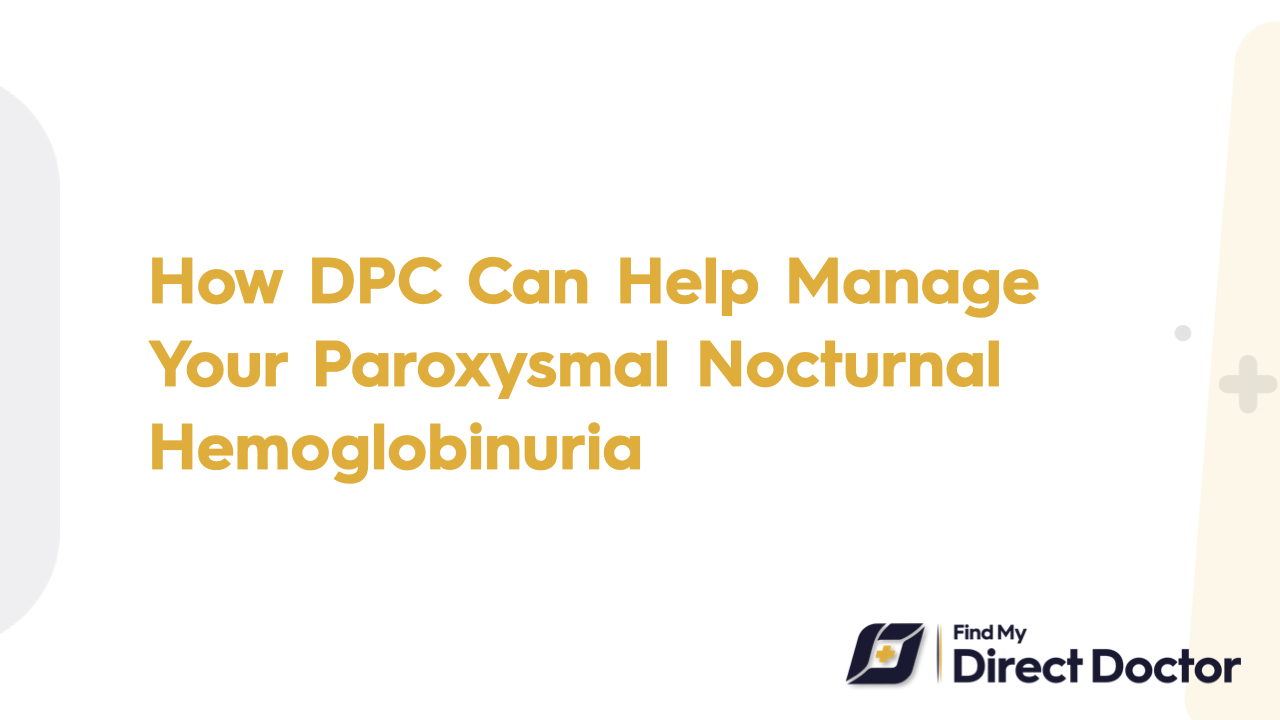



A rare acquired blood condition known as paroxysmal nocturnal hemoglobinuria (PNH) occurs when red blood cells prematurely degrade, releasing hemoglobin into the blood. This disorder is brought on by a mutation in the genes that control the synthesis of red blood cells, which causes these cells to be destroyed. Fatigue, shortness of breath, stomach ache, dark urine (usually in the morning), and a higher risk of blood clots are all signs of PNH. PNH should be identified and treated as soon as possible to avoid complications because it can also result in anemia and kidney issues.

People with Paroxysmal Nocturnal Hemoglobinuria (PNH) can receive individualized, continuous support from Direct Primary Care (DPC). DPC gives patients direct access to their doctor for routine monitoring of PNH symptoms and sequelae, including hemolysis and blood clot risk. Patients are closely followed under a DPC paradigm, which enables prompt treatment plan modifications and prompt resolution of any urgent problems. Additionally, it offers a welcoming environment for patients to voice their worries and guarantee that every facet of their health is properly taken care of.
For patients suffering from paroxysmal nocturnal hemoglobinuria, DPC provides a number of important advantages. Easy access to medical professionals is one of the biggest benefits, as it might be essential for treating a rare and complicated illness like PNH. Patients can benefit from proactive monitoring and more frequent, individualized consultations with DPC, which lowers the risk of problems and guarantees timely intervention when necessary. Better continuity of treatment is also made possible by DPC, since the medical professional can keep track of a patient's medical history and make educated decisions to properly manage the disorder.
The treatment of paroxysmal nocturnal hemoglobinuria is very individualized in Direct Primary Care. DPC providers can better grasp each patient's unique health needs and adjust treatment strategies since they have more time to spend with each patient. Regular blood testing, individualized drug schedules, and careful observation of any symptom changes are a few examples of this. Since they can contact their doctor at any time to discuss concerns or treatment modifications, patients with PNH also benefit from a more active approach to managing their care. Patients with PNH are guaranteed to receive the greatest assistance possible during their course of therapy thanks to this customized care.